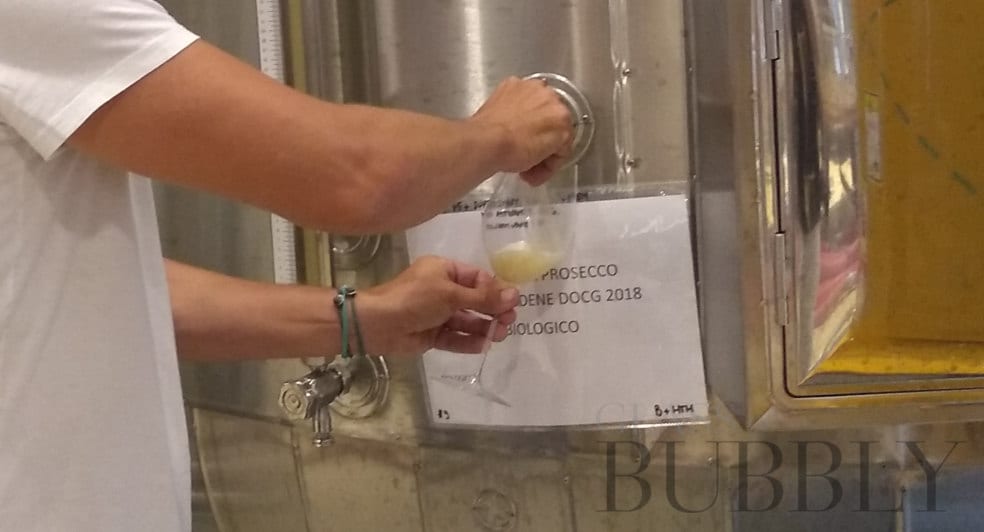Why Pure Filtered Water is a Key Component of Sparkling Wine
13th December 2022

It’s hard to find any type of beverage that water is not a significant part of, and sparkling wine is no exception.
Water plays such an important role in the sparkling wine-making process, that it’s first used in the creation of sparkling wine before even the first grape is crushed. But those that make sparkling wine for a living know that it’s not good enough to just use ordinary tap water when perfecting their craft. They realize that to make the best-tasting sparkling wines only filtered water should be used.
You are about to learn more about why pure-filtered water is such an important ingredient for those that are well-versed in making quality sparkling wine.
Water in the Wine Making Process
The best place to start when it comes to learning why filtered water is so important when making sparkling wine is to know where water is used in the sparkling wine-making process.
Water is first used in the fields to help grow the grapes. Next, it’s utilized as a tool to clean and sanitize the equipment such as the barrels and tanks that are used to make sparkling wine.
Significantly more water is consumed in these first two steps than the amount of water used as an additive to make the sparkling wine.
According to an article in the ‘Wine Economist’, just the processes used in the wine cellar to make sparkling wine require some six gallons of water to make 1 gallon of wine. Of course, filtered water is not required for watering the vines in the fields or for cleaning apparatus and equipment, but it’s imperative to use only pure filtered water as an additive when trying to make great-tasting sparkling wine.
How the Quality of Water Impacts Wine
Some very common impurities are found in tap and well water that can hurt the taste and appearance of sparkling wine.
Take for example chlorine, a substance that is commonly found in drinking water because it is a powerful bacteria killer. If the small amount of chlorine that’s found in most city water can hurt you is the subject of much debate, there is no debate that chlorine can negatively impact the taste of a batch of sparkling wine.
Here is a quote on the above-mentioned matter from the Iowa State University Extension and Outreach which states, “Chlorine has been eradicated from the winery due to its contribution to the formation 2,4,6-tricholoranisole (TCA), a compound responsible for cork taint. Mold growth in corks or on other wood sources coming in to contact with chlorine results in production of TCA by the mold. The fault is a musty, dusty, or wet cardboard-like odor with a very low sensory threshold.”
Microbes are other common water impurities that can harm the sparkling wine-making process that need to be filtered out. While a small number of microbes commonly found in water such as some bacteria can help accentuate the taste of sparkling wine, in higher amounts most will promote highly recognizable sparkling wine faults. This includes gerbil cage-like smells that make a sparkling wine taste ‘mousy’ and strong hay bail-like smells that lead to a tainted sparkling wine being termed to have ‘ropiness’.
What Types of Filters are Best for Water Used in Wine Making
One thing for sure when making sparkling wine is to not use a water filtration setup that is the envy of the neighborhood. More specifically, you don’t want a filtration system that removes every impurity that’s commonly found in water.
Why is this so?
Because filters such as reverse osmosis systems remove most of the beneficial minerals that are found in water. Some of these minerals such as magnesium and potassium are the desirable food of the yeast that acts as a catalyst in sparkling wine’s all-important fermentation process.
So, what are the best water filtration systems to use to purify the water that’s used as a sparkling wine additive?
I believe the answer to that is a quality whole-house water filter. That’s because most of these will do such things as remove chlorine, microbes and other impurities that will hinder making great-tasting sparkling wine without removing the minerals that make yeast happy.
Another benefit of using a whole-house water filtration system or similar filter to treat the water used as a sparkling wine additive is that some of these systems will allow you to pick and choose the different types of filters that are used in them. That way you can design a water filtration system that takes out impurities that negatively impact sparkling wine making but leave in beneficial minerals and other substances found in water that do not affect winemaking.
Whole home water filtration systems are also an inexpensive way to create a large volume of purified water if you are making sparkling wine at scale.
Conclusion
So, as you have read here, there is little doubt that water plays a huge role in the sparkling wine making process. Even more importantly, the use of properly filtered water as an additive significantly enhances the chances of a wine maker producing some great tasting sparkling wine.
Therefore, if you are getting ready to make a batch of sparkling wine or have an interest to do so in the future, make sure you start by purchasing a water filtration setup that will help you produce a batch of sparkling wine that tastes so good it will impress your family and friends.
![]()
Glass of Bubbly Content
Content shared by this account is either news shared free by third parties or advertising content from third parties and affiliations. Please be advised that links to third party websites are not endorsed by Glass of Bubbly Ltd - Please do your own research before committing to any third party business promoted on our website.
